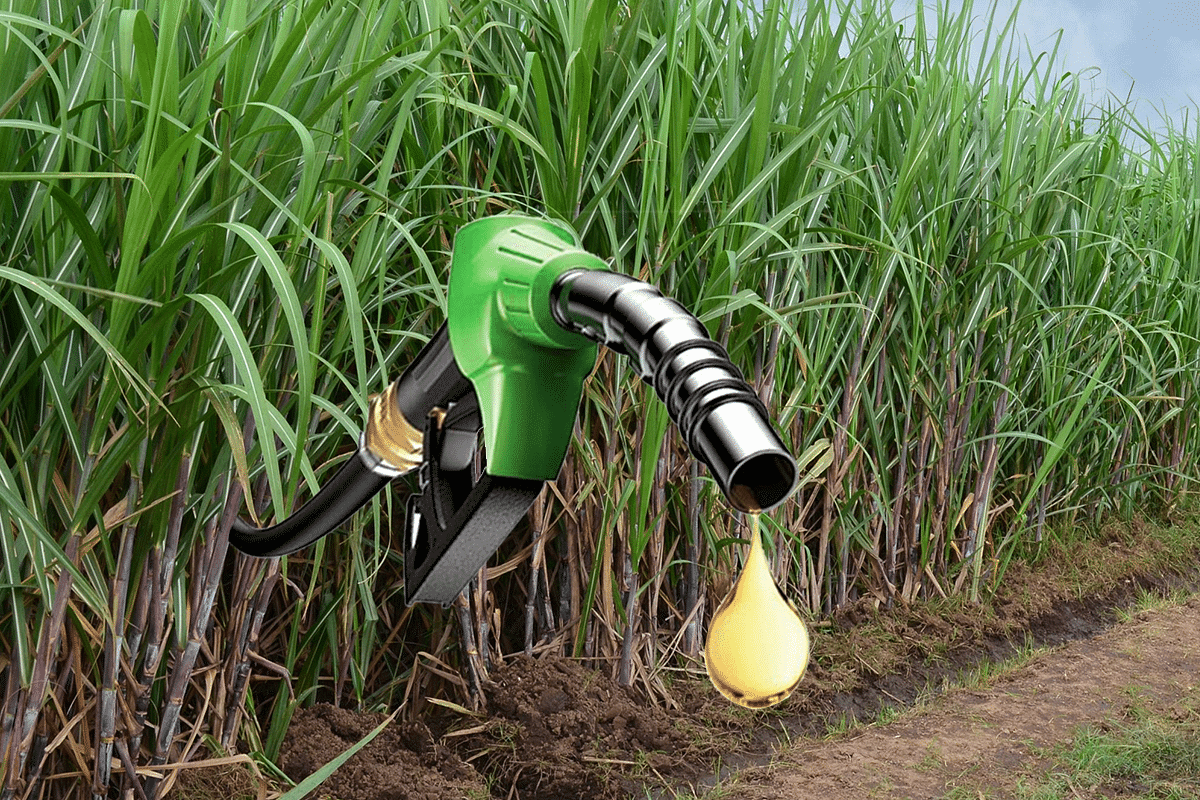Economy
How Ethanol Mix Can Be A Good Fuel For The Economy, Ecology And Endocrine Health
- A flexible-fuel vehicle can use gasoline with ethanol content greater than 10 per cent.

Ethanol
According to the US Energy Information Administration (EIA), ‘nearly all of the gasoline now sold in the United States is about 10 per cent ethanol by volume. Any gasoline-powered engine in the United States can use E10 (gasoline with 10 per cent ethanol), but only specific types of vehicles can use mixtures with fuel containing more than 10 per cent ethanol.
A flexible-fuel vehicle can use gasoline with ethanol content greater than 10 per cent. The U.S. Environmental Protection Agency ruled in October 2010 that cars and light trucks of model year 2007 and newer can use E15 (gasoline with 15 per cent ethanol). E85, a fuel that contains 51 per cent–83 per cent ethanol, depending on location and season, is mainly sold in the Midwest and can only be used in a flexible-fuel vehicle.
Brazil also preens with pride with its 25 per cent ethanol mix mandate which it is able to sustain thanks to its abundant cane cultivation.
If one benchmarks Indian progress in this regard, prima facie we are lagging behind but the recent reports of 7 per cent ethanol reaching our petrol pumps is a good augury though modest.
In the first four months of the supply year December to November, about 80 crore liters have been mixed with vehicle fuels, making it 7 per cent of the total. In other words the polluting and import-fed fossil fuel accounts for 93 per cent. At this rate, for the full year, ethanol could constitute 8.5 per cent of the total mix and by 2022 we might hit the target of 10 per cent though the target of 25 per cent by 2025 appears to be rather ambitious.
The government did well to broker peace between sugar mills and Oil Marketing Companies (OMCs). Both were till recently behaving like fair-weather friends---OMCs looked askance at ethanol when the international crude prices dipped and sugar mills looked askance at OMCs when the sugar prices and potable liquor prices were on the upswing.
The government brought both to the negotiating table and extracted commitments from them so that they do not side-step the important national goal of using biofuels in their fossil-fuel mix.
We in India can think out-of-the-box in this regard. Why not use agricultural waste and recycled cooking oil, wonder those in the know. Jatropha seeds have been used in India as they contain as much as 40 per cent oil that can be used straightaway as diesel substitute without refining.
The point is wild and spontaneous plantations as well as other agro and domestic wastes should be used as biofuel rather than staple diets like corn. The crop stubbles burning by farmers so as to quickly lay ground for another round of sowing seeds which is a sticky issue with the governments in the north Indian states can perhaps be overcome by incentivising farmers to sell the stubbles for possible use to extract ethanol.
Fossil fuels are highly polluting whereas biofuel content in them can considerably reduce this menace.
Diversion of sugarcane for ethanol production incidentally also does serendipitously a good turn for the diabetics in the country by making the sweetener expensive and thereby discouraging its consumption.
Sugar tax on sweets has been experimented in a few countries to reduce one’s girth size and waistline. But then a tax as a deterrent always invites resentment whereas higher costs extracted by shortage are taken a little more philosophically.
The ultimate solution as the state of the art stands of course is the electric car which is why Tesla, the market leader, is as much an investor’s delight as it beckons the automobile aficionados. But it could at least be a few decades before electric cars rule the Indian roads.
While the Indian power situation is much better it may be too much to expect people to junk their fuel-fired cars and power producers to ramp up their production to meet the heightened demands.
Introducing ElectionsHQ + 50 Ground Reports Project
The 2024 elections might seem easy to guess, but there are some important questions that shouldn't be missed.
Do freebies still sway voters? Do people prioritise infrastructure when voting? How will Punjab vote?
The answers to these questions provide great insights into where we, as a country, are headed in the years to come.
Swarajya is starting a project with an aim to do 50 solid ground stories and a smart commentary service on WhatsApp, a one-of-a-kind. We'd love your support during this election season.
Click below to contribute.
Latest